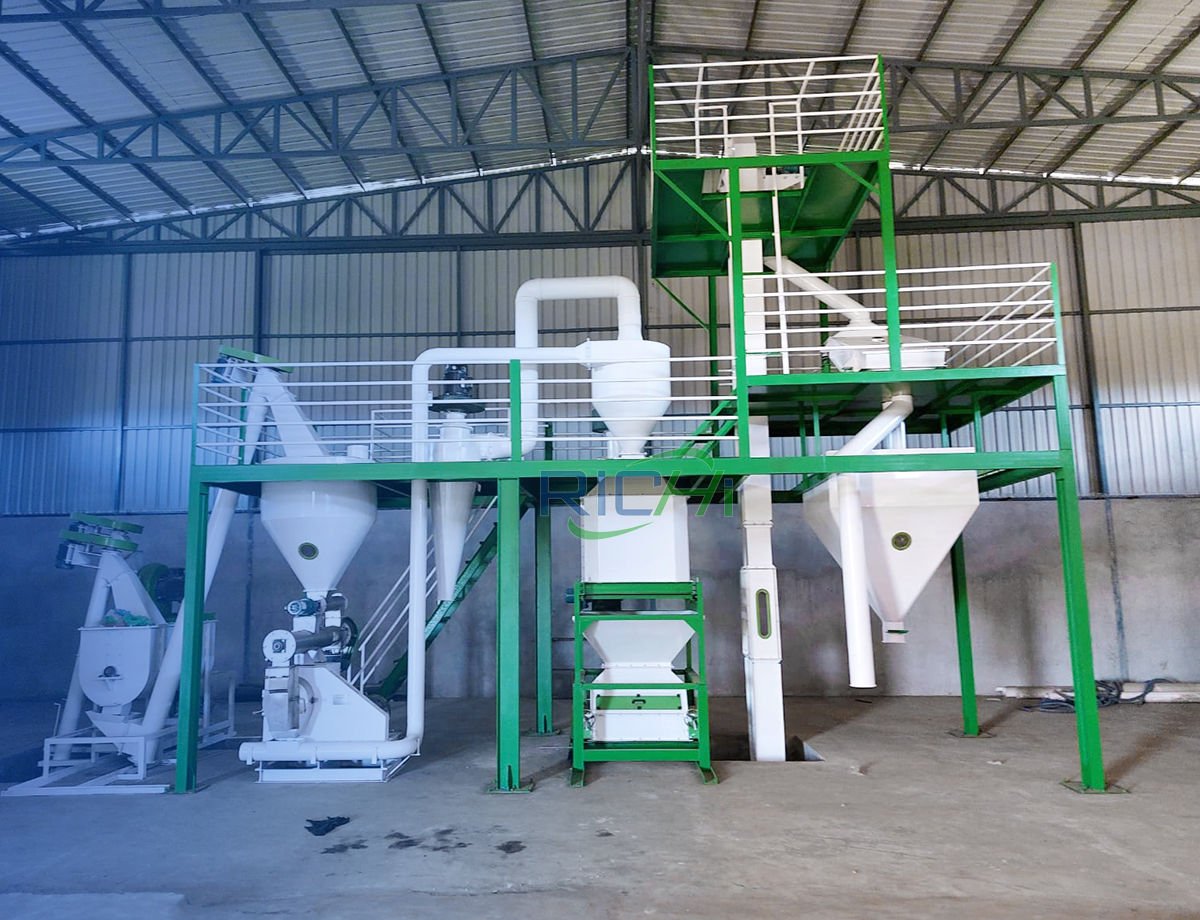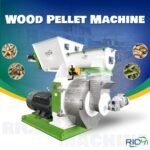Establishing a 1-2 tons per hour (t/h) small-scale feed mill plant in Africa presents a substantial opportunity for local farmers and entrepreneurs to bolster livestock production and food security. This adaptable facility is capable of processing a wide array of feed types, addressing diverse needs across the continent’s livestock and aquaculture sectors. Here’s an exploration of the various feed options producible by such a plant and their relevance to African agriculture:
Poultry Feed A primary output of small scale feed mills in Africa is poultry feed, critical due to rising demand for chicken meat and eggs. The plant can produce feeds tailored for:
- Broiler Chickens: High-protein feeds for meat production
- Layer Hens: Calcium-rich feeds for egg production
- Chick Starter Feeds: Nutrient-dense feeds for young birds These formulations typically include corn, soybean meal, wheat bran, vitamins, and minerals sourced and processed readily within many African countries.
Cattle Feed Cattle farming is prominent across Africa, and a small-scale feed mill can manufacture various cattle feeds, including:
- Dairy Cattle Feed: High-energy feeds supporting milk production
- Beef Cattle Feed: Protein-rich feeds for meat production
- Calf Starter Feeds: Specifically formulated for young calves These feeds often incorporate local ingredients like corn silage, grass hay, cottonseed meal, and molasses, abundant in many African regions.
Swine Feed Pig farming is gaining traction in some African countries, and the feed mill can produce:
- Grower Pig Feed: Balanced nutrition for growing pigs
- Sow Feed: Specialized feed for breeding sows
- Piglet Starter Feed: High-protein feed for young pigs These feeds typically contain a mix of corn, soybean meal, wheat middlings, and essential vitamins and minerals.
Goat and Sheep Feed Small ruminants play a crucial role in many African farming systems, and the feed mill can supply:
- Goat Feed: Formulated for both meat and dairy goats
- Sheep Feed: Tailored for wool and meat production
- Lamb and Kid Starter Feeds: Nutrient-rich feeds for young animals These feeds often include local forages, grains, and protein sources suitable for ruminant digestion. (Related post: https://www.richipelletmachine.com/feed-mill-pellet-machine/)
Aquaculture Feed With the burgeoning aquaculture industry in Africa, the feed mill can produce various fish feeds, such as:
- Tilapia Feed: Formulated for this popular freshwater fish
- Catfish Feed: High-protein feed for fast-growing catfish
- Carp Feed: Balanced nutrition for common carp species These feeds typically contain fishmeal, soybean meal, corn, and essential vitamins and minerals.
Rabbit Feed Rabbit farming is gaining popularity in some African countries as a meat source, and the feed mill can produce:
- Grower Rabbit Feed: Balanced nutrition for growing rabbits
- Breeder Rabbit Feed: Specialized feed for breeding does and bucks These feeds often contain alfalfa meal, wheat bran, and other locally available ingredients.
Specialty and Custom Feeds Small-scale feed mills can cater to niche markets and specific farmer needs, including:
- Organic Livestock Feeds: Using certified organic ingredients
- Game Animal Feeds: For wildlife ranches and reserves
- Custom Feed Blends: Tailored to specific farm requirements
Advantages of Local Feed Production Establishing a 1-2t/h small-scale feed mill plant in Africa offers several advantages:
- Utilization of Local Ingredients: Incorporating locally grown grains, oilseeds, and agricultural by-products supports local farmers and reduces reliance on imports.
- Freshness and Quality Control: Locally produced feed is fresher and of higher quality compared to imported feeds that may degrade during long transportation and storage periods.
- Cost-Effectiveness: By reducing transportation costs and using local ingredients, the feed can be more affordable for farmers.
- Customization: The small scale of the plant allows flexibility in producing custom feed blends tailored to local needs and conditions.
- Food Security: Local feed production enhances food security by supporting livestock and aquaculture industries.
Challenges and Considerations While small-scale feed mills offer numerous benefits, challenges include:
- Ingredient Sourcing: Ensuring consistent supply of quality ingredients in some African regions.
- Quality Control: Maintaining feed quality requires proper equipment and trained personnel.
- Power Supply: Reliable electricity is crucial for continuous operation, posing challenges in some areas.
- Market Demand: Understanding and meeting local market demands is vital for the plant’s success.
Conclusion A 1-2t/h small-scale feed mill plant in Africa can process a wide variety of animal feeds, meeting diverse livestock and aquaculture needs. From poultry and cattle to fish and specialty feeds, such facilities play a crucial role in supporting local agriculture and enhancing food security. By utilizing local ingredients, offering quality-controlled feed, and enabling customization, these feed mills contribute significantly to Africa’s livestock industry development. As Africa continues its agricultural advancement, investments in such versatile facilities are pivotal for meeting increasing demands sustainably and fostering economic growth.
For details please contact: pellet line
WhatsApp:86 138 3838 9622
Email:enquiry@richipelletmachine.com


